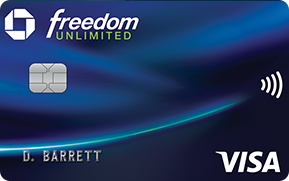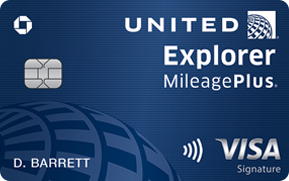- myFICO® Forums
- Types of Credit
- Credit Cards
- Re: Payments made between due date and statement d...
- Subscribe to RSS Feed
- Mark Topic as New
- Mark Topic as Read
- Float this Topic for Current User
- Bookmark
- Subscribe
- Mute
- Printer Friendly Page
Payments made between due date and statement date
Is your credit card giving you the perks you want?
Browse credit cards from a variety of issuers to see if there's a better card for you.
- Mark as New
- Bookmark
- Subscribe
- Mute
- Subscribe to RSS Feed
- Permalink
- Report Inappropriate Content
Payments made between due date and statement date
Stupid question.
Say my statement cutoff date is the 27th and the payment due date is the 19th. I have a balance due of $500) from my last statement and also have current new charges of $200 (all hypothetical numbers). If I make the minimum payment of $50 by the 19th and then PIF the remaining statement balance of $450 by the 26th, leaving a current new balance of $200, would I still be charged interest on the $450 that was technically "late"?
















- Mark as New
- Bookmark
- Subscribe
- Mute
- Subscribe to RSS Feed
- Permalink
- Report Inappropriate Content
Re: Payments made between due date and statement date
Short answer, "Yes".
Chapter 13:
- Burned: AMEX, Chase, Citi, Wells Fargo, and South County Bank (now Bank of Southern California)
- Filed: 26-Feb-2015
- MoC: 01-Mar-2015
- 1st Payment (posted): 23-Mar-2015
- Last Payment (posted): 07-Feb-2020
- Discharged: 04-Mar-2020
- Closed: 23-Jun-2020
I categorically refuse to do AZEO!





In the proverbial sock drawer:



- Mark as New
- Bookmark
- Subscribe
- Mute
- Subscribe to RSS Feed
- Permalink
- Report Inappropriate Content
Re: Payments made between due date and statement date
Yes.
In order to not pay interest you must pay the full statement amount by the due date which is the 19th in your example.
- Mark as New
- Bookmark
- Subscribe
- Mute
- Subscribe to RSS Feed
- Permalink
- Report Inappropriate Content
Re: Payments made between due date and statement date
@NYC_Fella wrote:would I still be charged interest on the $450 that was technically "late"?
Others have answered this but a minor point: nothing is technically (or otherwise) "late" here.
To be late, you have to have sent less than the minimum payment (which is most cases probably means not sending a payment at all) before the due date. Then you may get a late fee, in addition to the interest which you are being charged in this case too.
- Mark as New
- Bookmark
- Subscribe
- Mute
- Subscribe to RSS Feed
- Permalink
- Report Inappropriate Content
Re: Payments made between due date and statement date
Thanks for the responses.
I hate my Apple Card (it seems to be an orphan now at GS) but I love the fact that its payment due date and statement cutoff date are the same; i.e., the last day of the month. It's the only CC I know of that has this feature.
















- Mark as New
- Bookmark
- Subscribe
- Mute
- Subscribe to RSS Feed
- Permalink
- Report Inappropriate Content
Re: Payments made between due date and statement date
I think most cards put the due date a few days before the statement cut date to ensure that any on-time payment posts and appears on the statement, even if the payment takes time to post.
Apple/GS's system is probably designed to post in real-time, plus you're paying the bill online, so they can have the due date and statement cut the same date.
- Mark as New
- Bookmark
- Subscribe
- Mute
- Subscribe to RSS Feed
- Permalink
- Report Inappropriate Content
Re: Payments made between due date and statement date
But in this day and age, payments should post instantaneously. There's no need for a buffer period. It's just an artifact which allows issuers to charge extra interest.
















- Mark as New
- Bookmark
- Subscribe
- Mute
- Subscribe to RSS Feed
- Permalink
- Report Inappropriate Content
Re: Payments made between due date and statement date
@NYC_FellaIt varies significantly from lender to lender. My Discove payments usually take 2-3 days before it says my payment posted. It'll still be backdated to the date I inititated it if before the cutoff time, otherwise the following day). Capital One usually will update my available credit the same day, but will take 1-2 days to show posted and backdates as expected. Amex updates everything same day. I've also noticed that when I makle an payment to Amex, it seems to leave my checking account faster than my other lenders.
June 2022 FICO 8:



June 2022 FICO 9:



May 2025 FICO 8:



May 2025 FICO 9:




- Mark as New
- Bookmark
- Subscribe
- Mute
- Subscribe to RSS Feed
- Permalink
- Report Inappropriate Content
Re: Payments made between due date and statement date
@Zoostation1 wrote:@NYC_FellaIt varies significantly from lender to lender. My Discove payments usually take 2-3 days before it says my payment posted. It'll still be backdated to the date I inititated it if before the cutoff time, otherwise the following day). Capital One usually will update my available credit the same day, but will take 1-2 days to show posted and backdates as expected. Amex updates everything same day. I've also noticed that when I makle an payment to Amex, it seems to leave my checking account faster than my other lenders.
I think @NYC_Fella knows that, the point was the with electronic transfer (ACH for example) it should be possible for everything to be near-real-time. (I pay Chase, who gets realtime acknowledgement that this money is in my account, deducts it and sends it to Chase, who can immediately credit it). I think that things like paper checks can create real delays, and there is probably some fraud possibilities involving race conditions etc but in general things could move much faster
- Mark as New
- Bookmark
- Subscribe
- Mute
- Subscribe to RSS Feed
- Permalink
- Report Inappropriate Content
Re: Payments made between due date and statement date
@NYC_Fella wrote:But in this day and age, payments should post instantaneously. There's no need for a buffer period. It's just an artifact which allows issuers to charge extra interest.
Tell that to Capital 1. I made a payment to my savor one card directly from a cap one account and they still decided to ut a 4 day hold on the payment and available credit.. 4 DAYS for essentially an internal transfer !!! RIDICULOUS